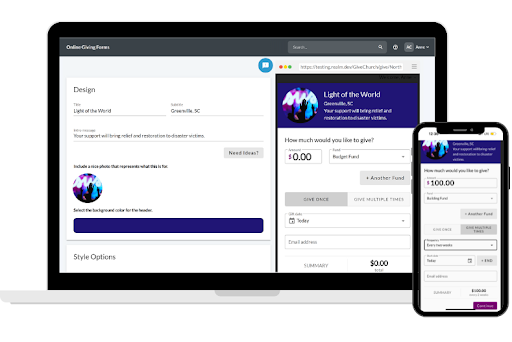The church has always had a lot to learn from the restaurant industry. In the 90’s we learned how radical hospitality works. And today, we are learning how faith formation works.
The pandemic has forced restaurants to reinvent themselves for a skip-the-dishes mentality that is here to stay. This isn’t about take-out. It’s about a portable food experience. It began with millennials. Those of you who use MissionInsite regularly will know that O51 Digital Dependents are ubiquitous in every context (rural, small town, small city, urban center, etc.) but poorly represented in most churches. They are leaders in the new skip-the-dishes mentality. During the pandemic, this mentality has rapidly spread to all ages and lifestyle groups. People want to enjoy dinner without all the hassle of preparation or the mess of cleanup.
I emphasize the word enjoy. Boomers and seniors tend to dismiss millennials as mere “consumers,” people who just take what they want and dispose of the rest. But we are no longer living with a “consumer” mentality but with a “skip-the-dishes” mentality. People want…indeed they are desperate…to enjoy their food and not just eat their food. They really want to enjoy a great dinner, but they don’t want to dress up, drive downtown, search and pay for parking, argue about the tip…and then go home, clean the closet, restart the fire in the fireplace, and complain about the service. But they still want to enjoy dinner! It is the new skip-the-dishes mentality…it’s spreading…and here to stay. Restaurants are learning that they are not demeaning themselves or betraying gourmet dining by making the food experience portable.
A few weeks ago, I blogged about the new house church movement and received interesting responses. Some celebrate the opportunity to connect with small groups of people from far away (both geographically and spiritually). Many just sigh longingly for the day when “things return to normal” and “everyone comes back to church.” The skip-the-dishes mentality has taken hold of culture, however, and worship will never be the same.
Listen, church people, listen. People want…indeed they are desperate … to experience the Holy, but they yearn to “skip the dishes.” They don’t want to dress up, drive, park, dodge eccentric people, and feel guilty about the offering…and then drive back, sigh with relief putting on their jeans, relight the fire in the fireplace, and complain about the sermon, the service, and the coffee. But they still want to enjoy spiritual food! Churches are not demeaning themselves, nor are they betraying “good” worship by making spiritual food portable.
The pandemic will end, and worship attendance will still go down. The “skip-the-dishes” mentality is growing. Call them what you like (house churches, garage churches, neighborhood pods, etc.). This is a whole new level of multi-site ministry. These aren’t franchises that look, learn, fellowship, worship, and contribute using a prix fixe menu from “mother” church. These are unique micro-cultures that experience the Holy a la carte. It’s the future, but you can still learn from the restaurants.
Ambiance is still important!
All five senses still must come alive. Churches can package everything one needs to transform their den or garage into a sanctuary. Images, incense, inspiration, music, scriptures, bread, and even the wine (or juice, or socially conscious coffee, or whatever fits your church core values). One thing you may not want to send is a long liturgy and a copy of the sermon. Skip-the-dishes people are unlikely to read over dinner, but they may well view powerful images or profound videos or listen to mission stories and popular bloggers. They will quickly get bored watching the church’s livestream (just as they resist watching reruns of football games). Just the highlight reel, please.
Relationships are even more significant!
Skip-the-Dishes people value genuine intimacy. One of the most common complaints from millennials about Sunday worship is that the conversation surrounding it is so trivial. There is often more serious spiritual conversation happening at the coffee shop than in the church food court. Worship with the pod can go much deeper. It is easier to make eye contact across the table in the safety of your home than across the chancel in the ritual of the sanctuary. However, the key to starting great conversations about faith is not to lecture about theology and invite questions but to ask serious questions about life and let people talk. Give them some internet links to learn more if they wish.
Hor d’oeuvres are still essential!
One of the delights of a truly enjoyable meal is the opportunity to experiment with different tastes. In the same way, the skip-the-dishes mentality means freedom to explore other Christian traditions and personal spiritualities. The secret fear of many clergy is that house church pods will digress from the straight and narrow path of their particular brand of orthodoxy. Yet freedom from judgmentalism is essential to skip-the-dishes people. Churches are learning that–so long as you embed Pauline core values of love, joy, peace, patience, kindness, goodness, generosity, and self-control–there is no need for law. We live by the Spirit.
A kiss is still a kiss!
Every church has a sacramental side. The sacrament may be “Holy Communion” or “Passing the Peace,” but it is when a believer experiences the real presence of Jesus. Just as seniors couldn’t accept the telephone as a means of intimate conversation, so boomers struggle to accept the internet as a means to experience intimacy. Most church people struggle with the idea that Jesus can be present in virtual space. Skip-the-dishes people know differently. They can feel intimate with someone halfway around the world, and they can feel the touch of Jesus through a smartphone. The sacrament is still sacramental. You can worship in a garage and still taste and see that the Lord is good.
Skip-the-dishes people are driving the emerging hybrid church movement. Online worship, online education, online relationship, and online holiness are no longer options for ministry. They are essential.
Tom Bandy is the author of the “MissionImpact Mosaic Application Guide” and coaches church leaders to use MissionInsite for the development of adaptive ministries. Tom welcomes questions about using MissionInsite for ministry planning and leadership development and can be reached at tbandy@acst.com.
Read More:





We have Fauci’d church leadership advice columns. In the very recent past we were told that people are returning to traditional churches – that they seem to yearn for that. Then there is this study or that stat which says something different. I am not trying to criticize any well intended efforts of these advice columns but the clear truth is God is big enough for any church. We must follow after Christ and start or develop churches along His leading. He will make a way when there seems to be no way. We must embrace those He has brought to us to serve Him and His church in whatever area of the world that may be. Receive one another in Christian love. My granddaughter doesn’t like to eat vegetables but at some point she will be taught their value. May God help us teach His ways to the next generation however He leads us to do so.